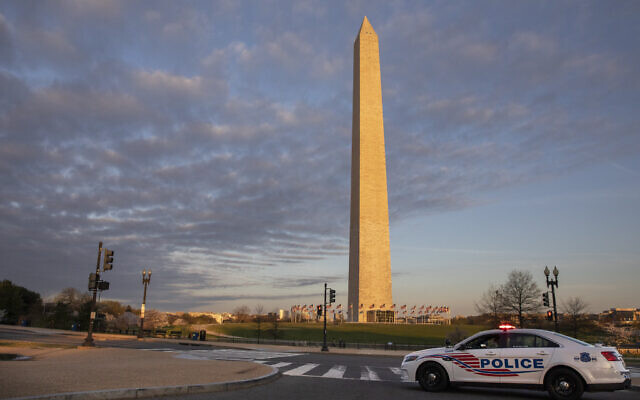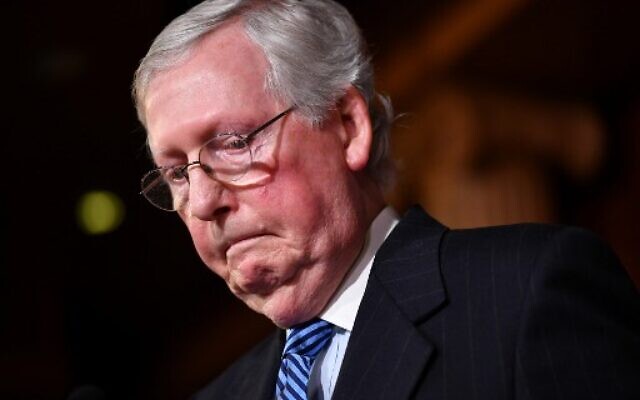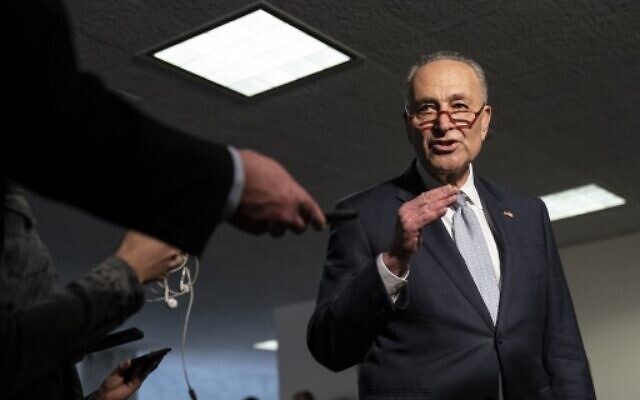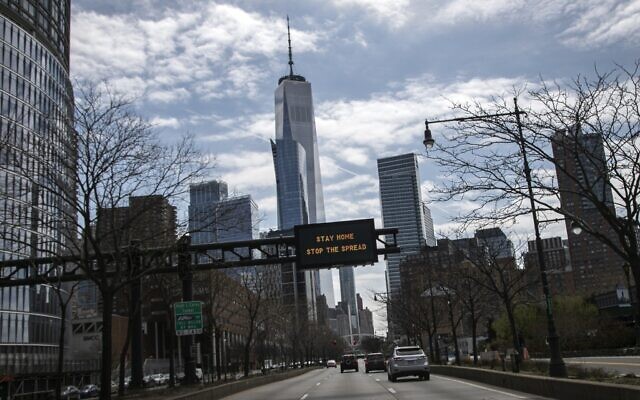Plan receives zero support from Democrats who charge it favors corporations at expense of US workers; 5 Republicans absent from the chamber because of coronavirus quarantines

WASHINGTON (AFP) — A trillion-dollar Senate proposal to rescue the reeling US economy crashed to defeat Sunday after receiving zero support from Democrats, and with five Republicans absent from the chamber because of virus-related quarantines.
Democrats said the Republican proposal failed to sufficiently protect millions of American workers during the coronavirus crisis.
The bill, which proposed up to $2 trillion in funding for American families, thousands of shuttered or suffering businesses and the nation’s critically under-equipped hospitals, fell far short despite intense negotiations between Republicans, Democrats and US President Donald Trump’s administration.
The Senate roll call was 47-47, when it needed 60 votes to advance. Five senators are in self quarantine and did not vote, including Senator Rand Paul, who announced Sunday he has tested positive for the COVID-19 illness.
The shock Senate result heaps major pressure on Congress to come together and greenlight a federal government intervention — likely the largest of its kind in US history — as soon as possible.
It is also likely to have a profound effect on already-traumatized stock markets when they open on Monday.
Senate Majority Leader Mitch McConnell blasted the Democratic opposition and warned of economic devastation ahead if Congress does not act swiftly.

“The notion that we have time to play games here with the American economy and the American people is utterly absurd,” he fumed after the vote.
“We need to signal to the public that we’re ready to get this thing done.”
McConnell took a procedural step of switching his vote so that he can bring the bill up later.
He signaled he wanted lawmakers to continue hammering out a deal, and recognize “the need to act before the markets go down further and the American people become even more depressed about our lack of ability to come together under the most extraordinary circumstances.”
Not there yet
The Senate’s top Democrat Chuck Schumer insisted the bill falls well short of sufficiently protecting US employees, millions of whom are at risk of losing their jobs as the economy comes to a halt, while offering a “large corporate bailout with no protections for workers and virtually no oversight.”
He accused Republicans of trying to “skimp on funding” to address shortfalls for hospitals, equipment, medical personnel and other health care infrastructure.

“Given more time, I believe we could reach a point where the legislation is close enough to what the nation needs for all of us to want to move forward,” Schumer told colleagues. “We are not yet at that point.”
Treasury Secretary Steven Mnuchin, perhaps Trump’s key representative in the process, had expressed hope an agreement could be reached Sunday.
He detailed a separate massive relief plan by US financial authorities that would pump $4 trillion in liquidity — a staggering 20 percent of US GDP — into the teetering economy.
Under one part of that plan a “significant package working with the Federal Reserve will have up to $4 trillion of liquidity that we can use to support the economy,” Mnuchin told “Fox News Sunday.”
Together, the urgent measures represented one of the most dramatic governmental rescue efforts outside wartime, with millions of people thrown out of work, thousands of businesses shuttered, travel severely curtailed and no certainty as to when things might improve.
They also came as the death toll and contagion confirmations continued to rise — especially in hotspots like New York — and as local and state officials nationwide warned of dire consequences absent more aggressive federal action.

“The worse is yet to come,” New York Mayor Bill de Blasio said on CNN, predicting hospitals in the city would face serious shortages of protective equipment within days unless drastic action is taken.
“We expect April will be a lot worse than March and I fear May could be worse than April,” he said.
Mnuchin said the congressional rescue would give small businesses enough cash to pay laid-off workers for two weeks, provide direct cash payments to Americans — about $3,000 for a family of four, he said — and enhance unemployment insurance for those laid off.
As reported by The Times of Israel
